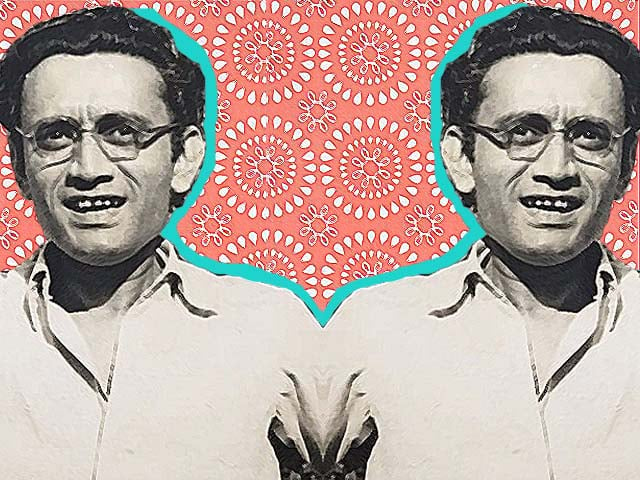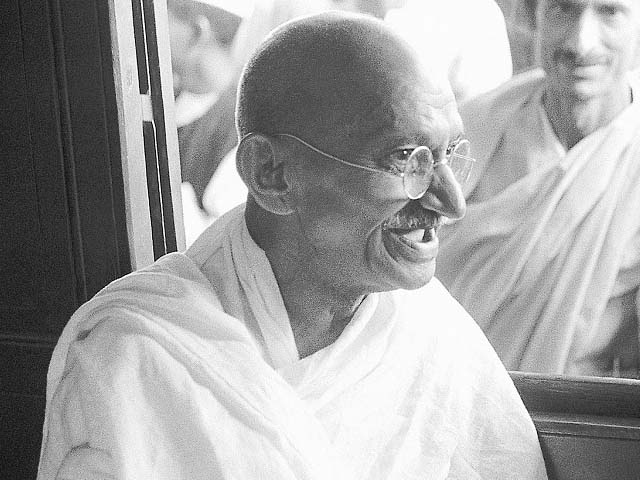
Revisiting Manto’s biting ‘Letters to Uncle Sam’ – Part 1
'Letters to Uncle Sam' contain a remarkable overview of history, politics, culture and international relations
In this two part series, Raza Naeem translates passages from Manto’s nine Letters to Uncle Sam and discusses their enduring legacy. Read Part 2 here.
~
Saadat Hasan Manto passed away on a foggy morning today, 65 years ago in my native city of Lahore. A few months shy of his 43rd birthday, his frail body had been consumed by alcohol and his spirit was exhausted by the many battles he fought in independent Pakistan against the state’s courts and critics, who shunned, marginalised and victimised him. Among the victims of his acerbic pen in his final years were Uncle Sam and the religious fanatics; twin cancers which continue to gnaw on the very foundations of Pakistan.
His prescient Letters to Uncle Sam were written in the early 1950s when the contours of Pakistan’s foreign policy were just beginning to be shaped by an unconstitutional government. Although written in a bitingly satirical vein, they contain a remarkable overview of the history, politics, culture and international relations of the period as they affected not only Pakistan and India but the wider world as well.
First letter
In his first letter, Manto not only takes a dig at the bloody tragedy of Partition but also compares his own poverty as that of Pakistan’s great short story writers in a poor country with the ostentatious wealth of the United States (US), which makes possible facial surgeries for the dead and opulent funerals for gangsters.
He wrote:
“I am poor because my country is poor, I’m lucky to still get two meals a day by any means, but there are some other fellows of mine who are too poor to even deserve this. My country is poor why is it illiterate you know this very well Uncle, this is one mutual chord of yours and your brother Bill’s which I don’t want to pluck, because it will come down hard on your hearing. I’m writing this letter as an obedient nephew that’s why I should perhaps remain obedient from start to finish. You will ask and ask with a lot of amazement why my country is poor when so many Packards, Buicks and Max Factors reach it from your country. My country’s population which rides these Packards and Buicks is not my country; my country is that where me and those worse than myself live.”
Second letter
The second letter throws interesting light on Uncle Sam’s cultural politics during the Cold War, when it was trying to woo the best artists of the post-colonial world into supporting the jihad against the Soviet Union, and was exporting soft pornography to woo the illiterate masses to the American way of life. Manto was similarly approached, by the US Embassy, to write an ostensibly partisan piece, and even after offering him a lucrative package, it failed to win Manto over because of his fiercely independent views despite his playful observation:
“As long as Pakistan needs wheat, I cannot be disrespectful to you, though as a Pakistani (despite the fact that my own government doesn’t regard me as obedient) I pray that, God willing, one day you will also be in need of lentils and mustard and if I am alive till then, I could send some to you.”
The tone of his letters gets progressively harsher as he proceeds to chastise American capitalism, as manifested by its consumerist culture, and the various defence deals the US conducted with both Pakistan and India, and the state of democracy in his own country.
Third letter
In his third letter, he offers his Uncle a tantalising proposal:
“Although you have millions and billions of nephews but you wouldn’t find a nephew like me even in atomic light; do turn your attention here once in a while, just one interested gaze is enough. Just announce that your country, may God preserve it till world’s end, will give military aid to my country (may God utterly wreck its distilleries) only if Saadat Hasan Manto is handed over to you.
A small, tiny atomic bomb I’ll definitely demand from you, it’s been a secret wish of mine since long that I should do one good deed in my life. You will ask, what is this good deed? You have done many good deeds though, and continue to do so; you wiped out Hiroshima, turned Nagasaki into smoke and dust as well as giving birth to millions of bastard American kids in Japan. I want to kill a dry-cleaner; some of our maulvis (clerics) here have a particular way of cleaning themselves after they urinate but what will you understand anyway it is like that after urinating they pick up a stone to clean themselves and reaching inside their shalwars while walking about throughout the bazaar openly dry-clean themselves. I just want that immediately after seeing such a person, I take out from my pocket the signature atomic bomb which you gift me and throw it at him so that he along with the stone blows up in smoke. The military pact with us is a great success, do stick to it. Over there with India you should also establish a similar relation, sell outdated weapons to both because you must have made redundant those weapons which you used in the last war. Your spare weaponry would be useful this way and your factories would not remain idle. Pandit Jawaharlal Nehru is a Kashmiri, do gift him a gun which goes off after being kept in the sun; I’m also a Kashmiri but a Muslim. I have already asked you for the tiny atomic bomb. One thing more the constitution has still not been framed here, for God’s sake send us an expert from there as soon as possible. The country can do without an anthem; but not without a constitution. But if you want, it can, as the poet says: Whatever your miracle-working beauty wants, it does.”
Satire aside, Manto was probably the first observer to foresee early on America’s disastrous foreign policy in various parts of the Muslim world in the 1950s and 1960s leading right up to the war against the Soviet Union in Afghanistan of assisting Islamist fundamentalist parties against the threat of rising communist and secular-nationalist forces, a process which has now come full circle with the unannounced execution of one of their own armed mullahs, Osama bin Laden, back in 2011, in Abbottabad.
Fourth letter
His foresight continues to dazzle with insight more than 60 years later in his fourth letter (which was posted in 1954):
“India may grovel before you a million times but will definitely make a military aid pact with Pakistan because you are really worried about the integrity of this largest Islamic sultanate of the world and why not, as our mullahs are the best antidote to Russia’s communism. If the military aid starts flowing, you should begin by arming the mullahs and dispatch vintage American (dry-cleaning) stones, vintage American rosaries and vintage American prayer mats, with special attention to razors and scissors, and if you bless them with the miraculous prescription of vintage American hair dye as well then do understand that the cat is in the bag.
The purpose of military aid, as far as I understand it, is to arm these mullahs, I’m your Pakistani nephew but I am aware of all your machinations but this heightened intelligence is all thanks to your politics (God save it from the evil eye). If this sect of mullahs is armed American-style, then the Soviet Union will have to pick up its spittoon from here, even whose gargles are mixed up in communism and socialism. It is evident that you will try your best to raise the lower-lower and lower-middle classes; recruitment will begin from these two classes, but I’m telling you that our upper class is capable of accepting all types of dishonour because it has already had its eyes washed out in your laundries, but the lower-lower and lower-middle class will not tolerate any such thing.”
Manto then moves on to satirise the All Pakistan Women’s Association (APWA), an elitist organisation founded by Begum Ra’ana Liaquat Ali Khan, wife of the country’s first (un-elected) prime minister Liaquat Ali Khan, who also has the dubious distinction of banning the Communist Party of Pakistan and bringing the country firmly into the American camp during the Cold War. This organisation claimed to work for the rights of Pakistani women and may well have served as a model for the dozens of women’s non-governmental organisations that mushroomed in the country after the demise of its worst dictator, General Ziaul Haq. He wrote:
“Please produce similar legs (as in the American film Bathing Beauty) so that we can also make such a film in our only film studio Shahnoor and show to APWA members so that they should feel a bit happy. APWA is a strange thing we have created which is the interesting result of the leisure activities of the great wives and daughters of great men. It is the acronym of the All Pakistan Women’s Association and there is no room for further abridgement but a struggle is going on still which you can view in their ever-shortening blouses. The APWA ones are always ready to think about shortening their dresses as long as someone gives them a well-tried prescription.”
And here he is on the aesthetics of kissing:
“I would also like to say something to you about the kiss-proof lipstick which you had sent. It has spectacularly failed among our upper classes. Girls and ladies have observed that this is kiss-proof' in name only, but I think even the way they kiss is wrong. I have observed them during these acts, it seems as if they are eating a slice of watermelon please send an American lady via air immediately who will make the difference between eating a melon slice and kissing totally clear to our upper class.”




COMMENTS
Comments are moderated and generally will be posted if they are on-topic and not abusive.
For more information, please see our Comments FAQ